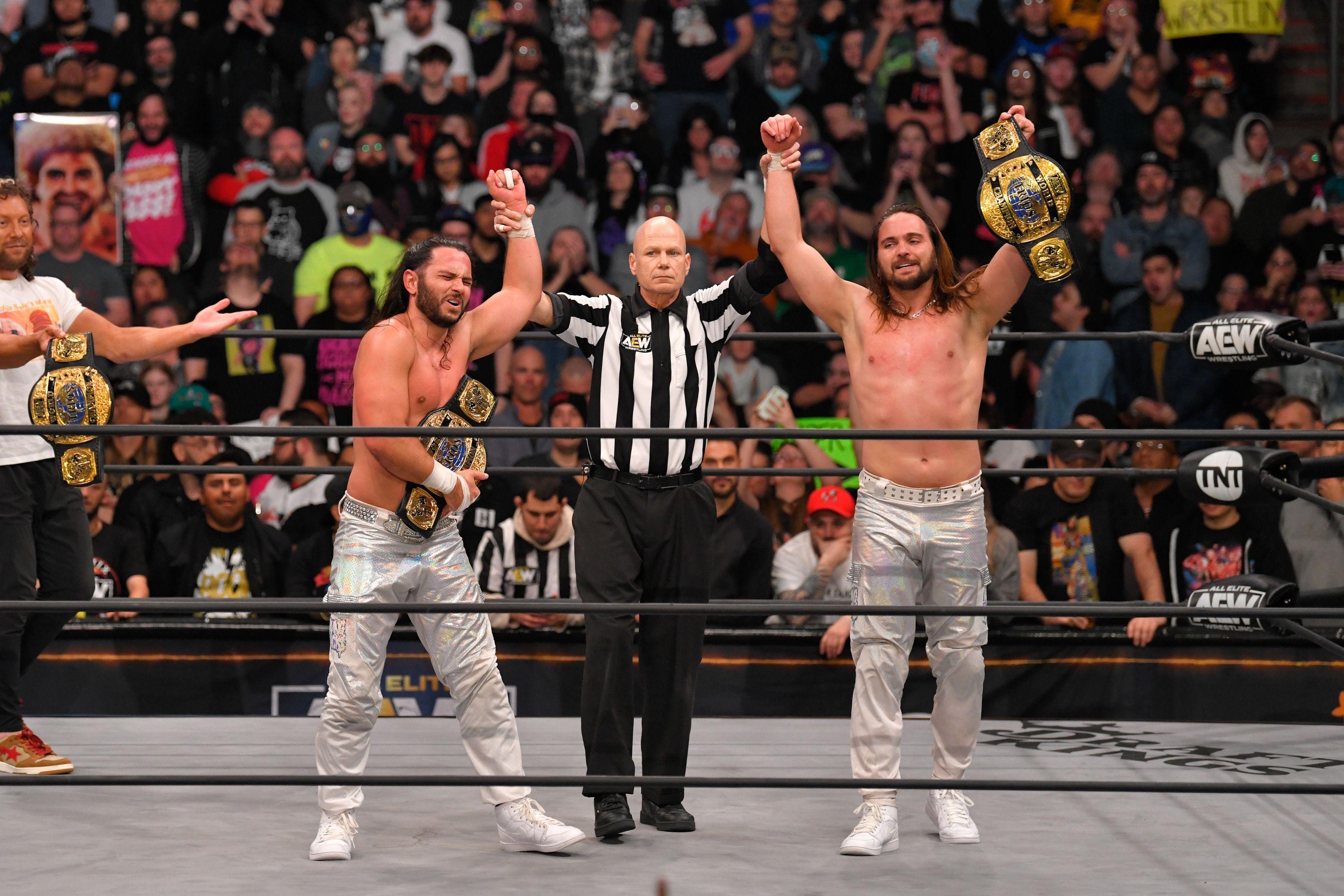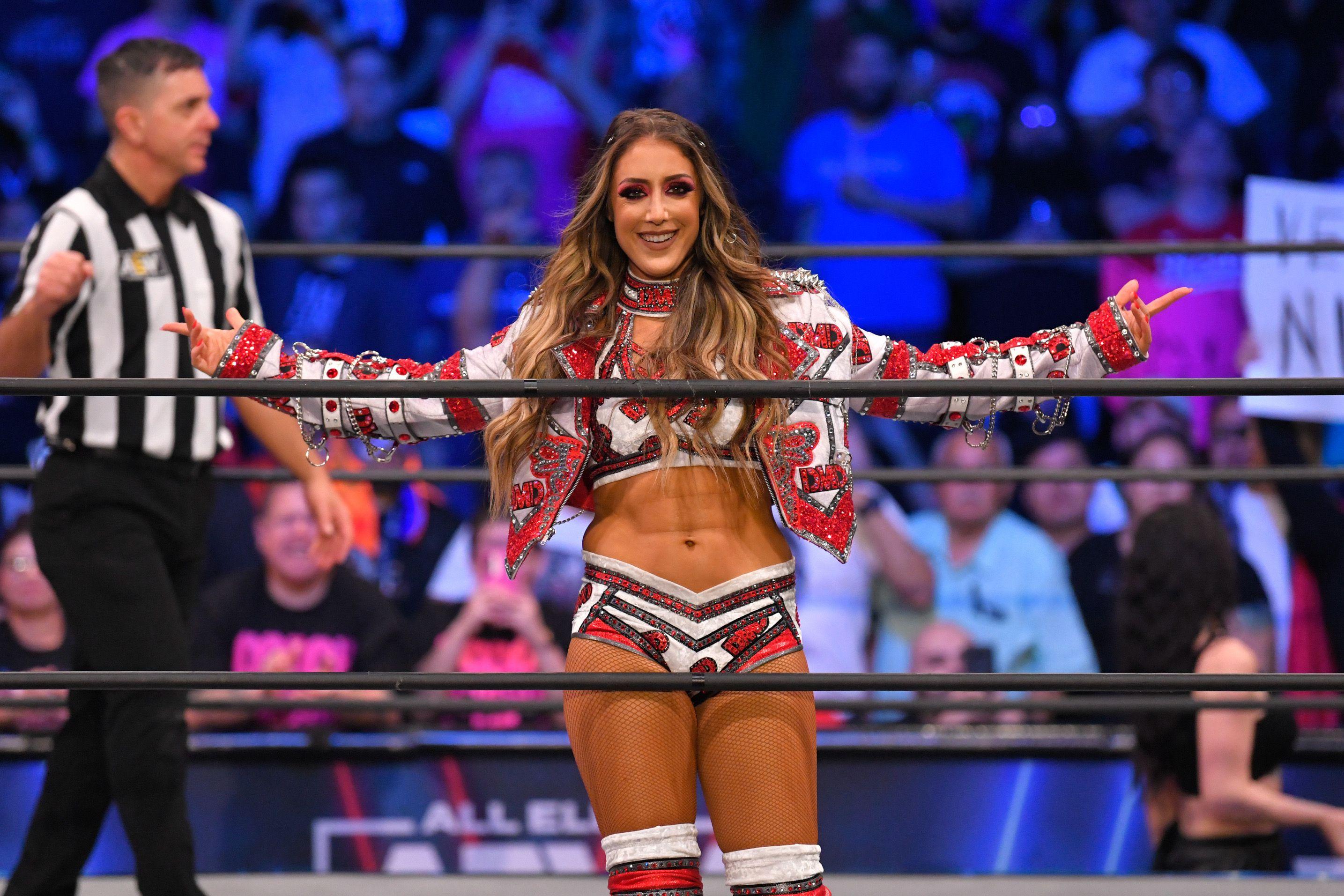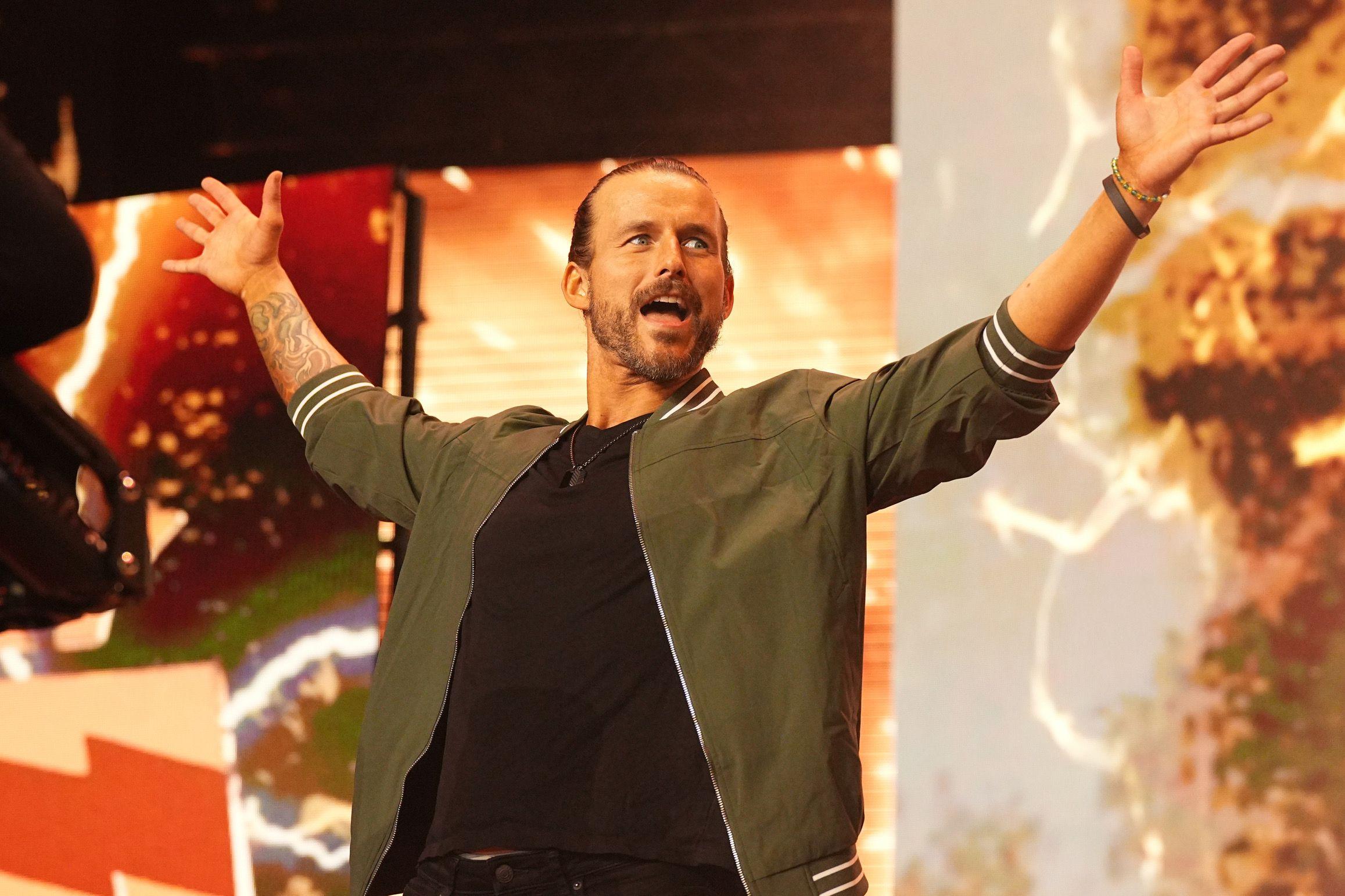Reality has seeped its way into the world of professional wrestling more than it ever has before, and All Elite Wrestling is digging its claws even further into that murky divide with its new reality series, AEW: All Access.
Only a few years ago, a professional wrestler might have been willing to talk trade secrets with someone outside the locker room—secrets once held so close to the chest that famously committed men like Dusty Rhodes would limp their way around the house with a cast on just to keep the legitimacy of a story line injury alive for their own kids. But the way wrestling protects its secrets changed somewhere in recent decades, alongside the internet. And ever since AEW crashed onto the scene in 2019, online chatter about the pro wrestling landscape and daily speculation about different promotions and their performers have only gotten more intense. Wrestlers themselves—many of who in AEW are former independent stars once used to using the daytime to work on their physique, hustle a side job, or simply take some time to rest before a match at night—are finding their daily schedules increasingly filled with interviews and appearances that aim to give fans more insight into their lives.
“Even in the last year, it’s gotten so much more dramatic,” says former AEW women’s champion Britt Baker, the standout star of the promotion’s new six-episode docuseries.
One recent afternoon, Baker and several other AEW stars explained that being a pro wrestler nowadays is not just about what you do in the ring but how you can elevate your profile beyond the canvas. On social media, on podcasts, on YouTube shows, at fan conventions, and, in more recent years, on a growing number of documentaries and television series, the in-ring performers find themselves trying to be more real and shed light on just about everything that makes up pro wrestling’s truth-tainted universe.
“It’s almost become a 24-hour job now,” says Nick Jackson, who helped found AEW in 2019 and has been at the center of its biggest backstage controversy in recent months. “We’re not just professional wrestlers anymore. We do all these other things outside of that, and it can be hard to unwind most of the time.”
Nick, whose real last name is Massie and who wrestles alongside Matt Jackson (his real-life brother Matt Massie) as the Young Bucks, says they’ve both learned how to better adjust to fans’ growing hunger for more access over their 18-year careers. Blogs, or “dirt sheets,” serve to spoil match outcomes before the bell even rings. Podcasts aim to squeeze the juiciest stories out of each wrestler. Fans use the internet to find out everything they can about a wrestler’s personal life—sometimes using that info to hurl insults at them from afar or, more frightening in Baker’s case, stalk them at their day jobs for autographs. But now, even performers are pulling back the curtain in unprecedented ways with ride-along series like All Access, revealing little by little the core reality of an art form founded on the elevation of it.
“In the beginning, it wasn’t like that,” Matt says. “There still were hecklers and there still are people on wrestling forums, but all of a sudden now you can become famous overnight, and with that fame comes a lot of hate and criticism. … And that’s just the way the social media world works now, and that can be tough for a young kid. I really feel bad, and I sympathize, for those guys who don’t know what it’s like. … We’re going out there in our human bodies, and we have real human emotions and feelings. And when people say things about your real person, like, ‘Oh, I don’t like these guys as [executive vice presidents of AEW]’ or ‘I don’t like these guys in this certain way,’ and they don’t really know the full story, of course you’re a human being and it’s going to hurt your feelings.”

The Young Bucks say they’ve experienced it all, especially as of late. For better or for worse, All Access doesn’t fully pull back the curtain on everything going on with the promotion and, in some ways, fails to give fans the answers to their biggest points of interest. Chief among them: the backstage fight that reportedly took place between the Bucks, their teammate Kenny Omega, and CM Punk at All Out last September. The incident resulted in suspensions, script and title changes, and the apparent excommunication of former world champion CM Punk, but most of all it spawned endless speculation online among unsatiated fans clamoring to know more. All Access skirts around the subject, and the Bucks, hesitant to freely discuss the issue, only offer up how “nervous” they were to come back from a nearly three-month suspension instead of taking a pin to ballooning theories online they say aren’t necessarily true.
“That’s what sucks about wrestling now, there is very little mystique,” Matt says. Yes, he, his brother Nick, and a handful of their closest friends in wrestling have spent the last seven years documenting their life on the road each week for their own YouTube channel, Being the Elite. But the Bucks say they can curate what fans see, protecting both the business and their personal lives. “All Access was revealing in a way where they wanted to come to our homes and do all this stuff,” Matt says. “We had to tell them, ‘Hey, some stuff’s off-limits.’”

The series does find ways into other wrestlers’ homes, however, providing for the most emotional moments of the six-episode experiment, most notably when Adam Cole’s mother cries into the camera that she just wants her son to make sure he’s looking out for his health. “I was shocked when he said he would do the show, because he’s a very private person,” Baker says about Cole, who is her boyfriend. The show’s production was anything but private, Baker says, describing it as a “lights up all day” operation, to the point that she forgot cameras were following her and at times didn’t know where the film crew was posted up in the arenas AEW travels to each week. “It’s definitely something that takes a second to get used to,” she says. “But I think it will be very eye-opening for a lot of fans.”
Especially when it comes to seeing “how dangerous and how scary” pro wrestling can be, Baker explains. She’s seen it up close with Cole, and those emotional ups and downs to a wrestler’s career were one thing AEW set out to highlight with its new program. “It’s important,” Cole says. “It’s important to my story, and I think it’s important for the fans to be able to see what went down while I was gone.” Camera crews follow Cole to the doctor, to the gym, in the car during emotional discussions with Baker, and even to Christmas with his family. In those moments, All Access does find success in introducing the person behind the character that fans are used to seeing on television each week.

“I do take a lot of pride in being able to turn it off,” Cole says. “I have always known and understood that when I am ‘Adam Cole,’ whether it’s a good guy or bad guy, I am playing a character. And Austin [his real name] is a completely different person in some ways. Now, the lines have kind of been blurred a little bit, where the similarities are a little closer with my wrestling character, but for years, I would, in my mind when I would play ‘Adam Cole,’ I would say, I want to be and act like a person I would hate to see. Like, when you walk into a room you go, ‘Oh, great, so-and-so is here.’ That’s what I wanted Adam Cole to be, so for me it was never difficult for me to turn it on or off.”
AEW co-owner Tony Khan wants the show to “build greater affinity” between the fans and their favorite wrestlers. He hopes the series can “strike a balance regarding the right amount of access without destroying the mystique of certain larger-than-life personalities.”
For the wrestlers themselves, it’s an opportunity to let the foot off the gas a little bit and become humanized. “It gives talent and the fans a chance to get to know these people a little bit more on a deeper level,” Cole says. “Pro wrestling is fascinating. There is no job on the planet like it. So to have the chance to show them more of what we do every day is a positive in my book.”
Sean Neumann has written about professional wrestling and pop culture for outlets like People Magazine, Rolling Stone, ESPN, VICE, The New York Times, and more. You can follow him on Twitter here.